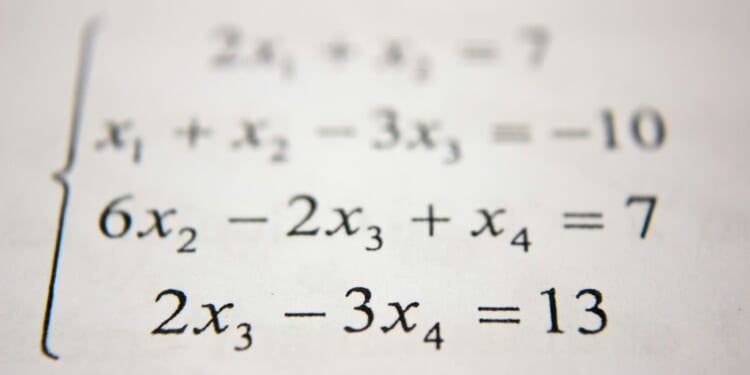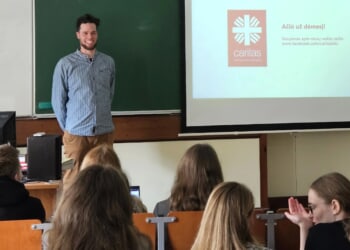Davida Ademuyiwa is a business owner and former Councillor, and a former Cabinet Member for Training, Development and Apprenticeships with EELGA. She has a wealth of experience in education and training and serves as the Conservative Policy Forum Ambassador for the Eastern Region.
Labour’s VAT policy was sold as a blow to Eton. In reality, it’s a tax on parents in Wigan and Romford – families who can’t afford private school but pay for a bit of extra maths so their children don’t fall behind. They’re not buying privilege. They’re buying opportunity. And now, they’re being taxed for it.
When Kemi Badenoch called Labour’s VAT on private school fees a “tax on education,” she was right. But this debate isn’t only about elite boarding schools. It’s about the overlooked families doing what the state system has failed to do: teaching their children the basics in maths, English, and science, often through small after-school tuition providers.
These are the hard-working, tax-paying families Britain depends on; those who don’t qualify for support but still sacrifice to give their children a fair chance. They already fund state education through their taxes, and now they’re being taxed again when they step in to fix what that same system couldn’t deliver.
The national debate has focused on Eton and Harrow. But the real story is happening quietly across kitchen tables in towns like Wigan, Romford, and countless others where parents are juggling bills, giving up weekends, and scraping together the money to help their children succeed.
Thousands of parents across the country are watching their tutoring bills rise by 20 per cent. Some are helping children struggling to reach basic competence; others are helping bright pupils push for the grades needed to get into sixth form or university.
These families aren’t chasing privilege – they’re demonstrating responsibility. They’re doing what good parents should do when the system falls short. They now face a triple tax on education: they pay through general taxation for a state education that often fails to teach core skills; they pay again for private tuition to fill those gaps; and they pay a third time through VAT – a tax on fixing state failure.
The Treasury expects to raise between £1.3 and £1.6 billion a year from applying VAT to private school fees. While those estimates focus on independent schools, the same principle is now creeping into the supplementary education sector, where thousands of families rely on evening and weekend tuition to help their children succeed.
Limited companies offering tuition have always had to register for VAT once turnover exceeds £90,000, but Labour’s new education tax policy has blurred the lines further, bringing small tutoring providers into the same frame as elite private schools.
That confusion has real consequences. Some small tuition businesses already charge VAT, meaning parents are effectively paying a tax on core education. Others don’t. The inconsistency is indefensible: parents should never pay VAT to teach their children maths, English, or science.
It’s an absurd cycle: the state fails, parents step up, and government taxes them for doing so. Now, the same confusion that hits parents weighs too on the small businesses trying to help them.
Across the country, online, evening, and weekend tuition centres employ local tutors and serve families who need flexible, affordable help.
But once these providers cross the £90,000 threshold, they must add 20 per cent VAT, forcing an impossible choice between raising prices (and pricing families out), splitting the cost (and barely breaking even), or absorbing it (and running at a loss). Meanwhile, a self-employed tutor earning more than £90,000 may remain VAT-exempt; we’re punishing businesses that employ people and contribute to local economies while rewarding those who stay small.
This VAT is anti-family, anti-aspiration, and anti-enterprise. It discourages growth, limits opportunity, and taxes the very effort that strengthens our economy.
Other nations treat education as a strategic investment, not a taxable service. Here in the UK, families paying for core-subject tutoring are effectively paying a tax on productivity. Each child who leaves school without functional literacy or numeracy earns less, contributes less, and depends more on the state.
Tutoring helps close that gap: it’s not a luxury, it’s an investment in human capital. This isn’t about defending privilege; it’s about defending principle.
Badenoch was right: a tax on education is a tax on aspiration. If it’s wrong to tax Eton, it’s worse to tax the family in Wigan trying to get their child through GCSE maths.
These families aren’t paying for privilege, they’re paying for progress. They’re not dodging responsibility; they’re embodying it. Conservatives believe that families, not government, are the foundation of a strong society. Parents who take responsibility for their children’s learning should be celebrated, not punished.
To restore fairness and promote growth, we should:
- Reform the VAT threshold so that small tuition providers aren’t forced to penalise families;
- Recognise tutoring as essential education, not luxury spending;
- Zero-rate VAT for core-subject tuition across the board: maths, English, and science.
Because the truth is simple: the parents paying for tutoring are doing what the government failed to do – ensuring their children receive a proper education.
This debate isn’t just about Eton. It’s about parents in towns across Britain who go without so their children don’t get left behind. About being a nation that believes in aspiration shouldn’t punish the parents doing what the system failed to do: helping their children succeed.
It’s not Eton. It’s extra maths – and no government that values enterprise, aspiration, or education should be taxing parents for doing what the system should have done in the first place.








![Florida Officer Shot Twice in the Face During Service Call; Suspect Killed [WATCH]](https://www.right2024.com/wp-content/uploads/2025/12/Inmate-Escapes-Atlanta-Hospital-After-Suicide-Attempt-Steals-SUV-Handgun-350x250.jpg)








